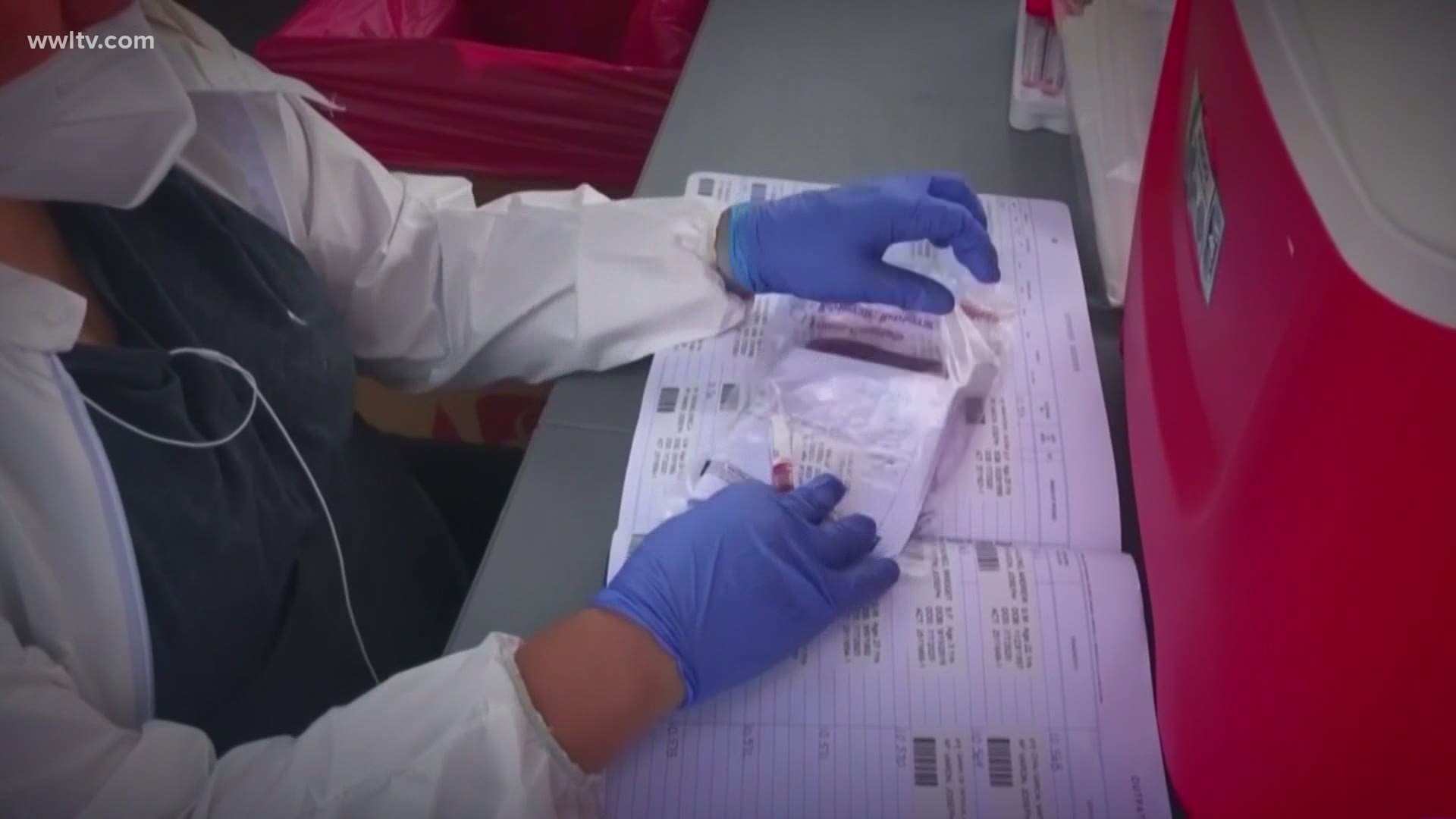NEW ORLEANS — There's still a lot of mystery with the Coronavirus.
A lot of people are now finding themselves with symptoms even after recovering from the virus. They're what's known as a "long hauler." For some, it's turned their world upside down.
Life was good for 35-year-old Carrie Stuckwisch pre-COVID. However, the weekend of March 14, everything changed.
"I woke up and my heart rate was kind of high," she remembers. "And I had had a glass of wine the night before so I thought I was a little dehydrated but I was so tired I couldn't keep my eyes open."
Weeks turned to months and her symptoms became debilitating.
"I was having stomach issues, headaches, very lethargic I couldn't get off the couch," she said. "And it kind of progressed from there into shortness of breath, which felt like panic attacks because I couldn't breathe. I lost 15 pounds in three weeks. My hair was falling out, I couldn't sleep, I'd wake up in the middle of the night gasping for air, it was awful.I couldn't think, I couldn't focus, I couldn't read a book, I couldn't watch TV. My heartrate would shoot up if I stood up and walked around. One time I went to the grocery store and I had to recover for three days because it took so much out of me."
Stuckwisch, who showed all signs of the virus, surprisingly tested negative. Her symptoms got so bad, she couldn't work, read a book or walk up stairs. And those she spoke about it with thought it was all in her head.
"My friends loved me so much, but they thought it was anxiety. And so I just didn't have the immediate support I needed, but you can't really blame them because how do you explain to someone you feel like you're dying but the doctors say there's nothing wrong and everything looks perfect?"
About 10% of people who get COVID-19 are "long haulers," or those who suffer long-term symptoms after recovering from the virus. Those affected report brain fog, extreme fatigue, joint pain and body aches.
What has experts confused is COVID-19 tests can come back negative.
"And we don't understand why that is the case, maybe a residual virus that lingers, and there's other hypotheses. There's a hyper immune response when the virus has cleared," said Greg Bix, Tulane's COVID-19 Biobank Director. "Sometimes their symptoms are different than what they felt at the height of their illness. We don't quite understand why. We know, it seems to be in women more than men and we don't know why. It could be something having to do with immune response."
Bix also says depending on the test and when it was taken relative to the illness, it could be a false negative. With so many questions, work is starting locally to find answers.
"So one of the things we're doing at Tulane is we established a Biobank, where we're collecting blood and other tissues from willing patients and people who've recovered from COVID-19, so we can do research and see if there any particular factors that predicts someone who'll develop this problem," Bix said. "It's the gift that keeps on giving because we don't know what we're going to want to know 5-10 years from now."
The CoBALT as it's called (COVID-19 Biobank and Library at Tulane), will allow researchers at Tulane to look at the samples now and many years down the road.
"The great thing about the Biobank is we don't know what questions we're going to ask six months from now," Bix said. "So we're collecting materials, everyone is able to contribute, and we can go in two years from now and ask questions and have that resource."
Stuckwisch meanwhile is still symptomatic, but is feeling better. She says she's found a doctor who's been very helpful throughout this journey and is finally feeling hopeful.
"[It's] given me a new appreciation for my health and things that I have and I don't take for that all for granted," she said.
She's also optimistic a clue will one day be found that could help her and so many others. She also says she's found a local support group that's helped through all of this, and encourages anyone else dealing with similar symptoms to do the same.
Bix also says they're encouraging anyone who's recovered or is recovering from COVID-19 to submit a sample to Tulane's Biobank. If you're interested in helping, you're asked to e-mail: seroepicovid@tulane.edu
► Get breaking news from your neighborhood delivered directly to you by downloading the new FREE WWL-TV News app now in the IOS App Store or Google Play.

